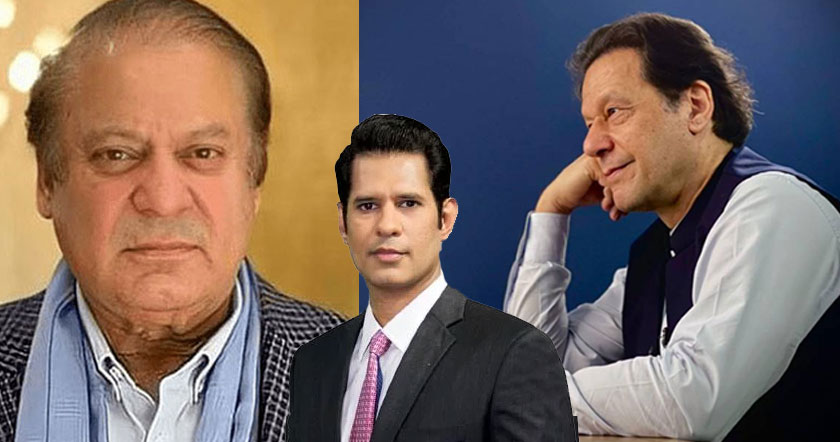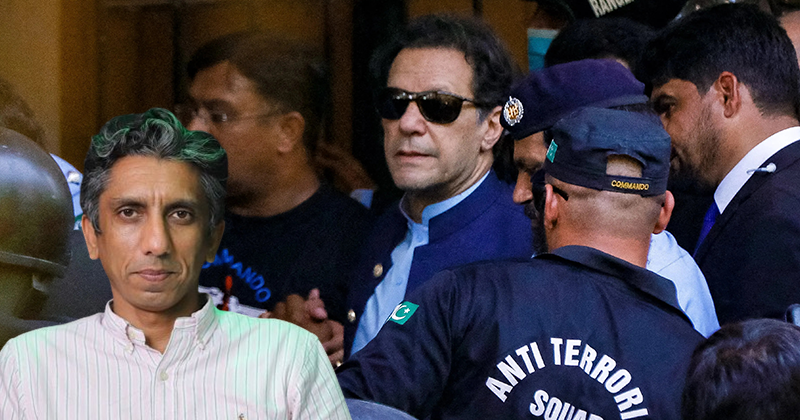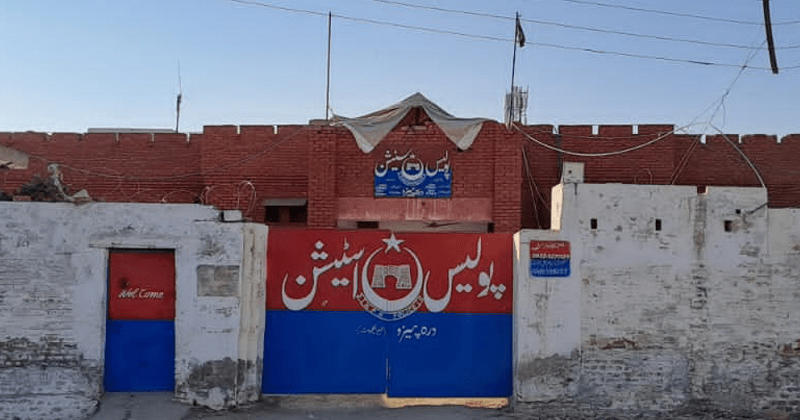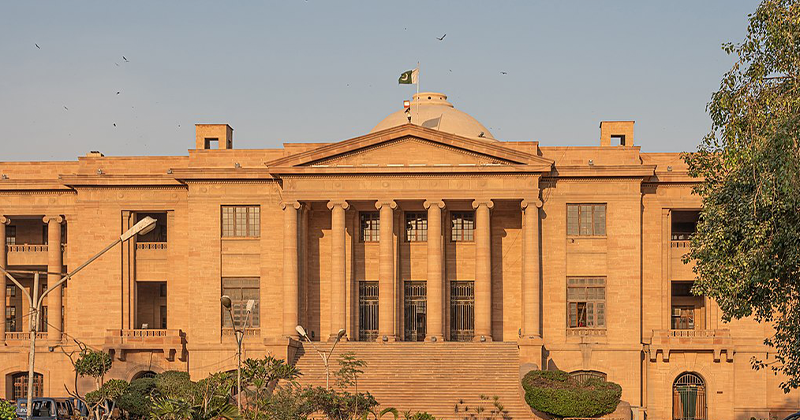Delivery of US Weapons and Ammunition to ISIS: Iraqi Commander Wiretaps ISIS Communications with US Military
By Fars News Agency
 A commander of Iraq’s popular forces disclosed that wiretapping of ISIL’s communications has confirmed the reports that the US planes have been airdropping food and arms supplies for the Takfiri terrorists.
A commander of Iraq’s popular forces disclosed that wiretapping of ISIL’s communications has confirmed the reports that the US planes have been airdropping food and arms supplies for the Takfiri terrorists.
“The wiretapped ISIL communications by Iraqi popular forces have revealed that the US planes have been dropping weapons and foodstuff for the Takfiri terrorist group,” Commander of Iraq’s Ali Akbar Battalion told FNA on Wednesday.
He noted that tapping on ISIL disclosed the terrorist group’s regular contacts with the US army, and said,
Many similar reports by Iraqi officials and forces have surfaced in the last few months.
In February, an Iraqi provincial official lashed out at the western countries and their regional allies for supporting Takfiri terrorists in Iraq, revealing that the US airplanes still continue to airdrop weapons and foodstuff for the ISIL terrorists.
“The US planes have dropped weapons for the ISIL terrorists in the areas under ISIL control and even in those areas that have been recently liberated from the ISIL control to encourage the terrorists to return to those places,” Coordinator of Iraqi popular forces Jafar al-Jaberi told FNA.
He noted that eyewitnesses in Al-Havijeh of Kirkuk province had witnessed the US airplanes dropping several suspicious parcels for ISIL terrorists in the province.
“Two coalition planes were also seen above the town of Al-Khas in Diyala and they carried the Takfiri terrorists to the region that has recently been liberated from the ISIL control,” Al-Jaberi said.
Meantime, Head of Iraqi Parliament’s National Security and Defense Committee Hakem al-Zameli also disclosed that the anti-ISIL coalition’s planes have dropped weapons and foodstuff for the ISIL in Salahuddin, Al-Anbar and Diyala provinces.
In January, al-Zameli underlined that the coalition is the main cause of ISIL’s survival in Iraq.
“There are proofs and evidence for the US-led coalition’s military aid to ISIL terrorists through air(dropped cargoes),” he told FNA at the time.
He noted that the members of his committee have already proved that the US planes have dropped advanced weaponry, including anti-aircraft weapons, for the ISIL, and that it has set up an investigation committee to probe into the matter.
“The US drops weapons for the ISIL on the excuse of not knowing about the whereabouts of the ISIL positions and it is trying to distort the reality with its allegations.
He noted that the committee had collected the data and the evidence provided by eyewitnesses, including Iraqi army officers and the popular forces, and said, “These documents are given to the investigation committee … and the necessary measures will be taken to protect the Iraqi airspace.”
Also in January, another senior Iraqi legislator reiterated that the US-led coalition is the main cause of ISIL’s survival in Iraq.
“The international coalition is only an excuse for protecting the ISIL and helping the terrorist group with equipment and weapons,” Jome Divan, who is member of the al-Sadr bloc in the Iraqi parliament, said.
He said the coalition’s support for the ISIL is now evident to everyone, and continued, “The coalition has not targeted ISIL’s main positions in Iraq.”
In Late December, Iraqi Parliamentary Security and Defense Commission MP disclosed that a US plane supplied the ISIL terrorist organization with arms and ammunition in Salahuddin province.
MP Majid al-Gharawi stated that the available information pointed out that US planes are supplying ISIL organization, not only in Salahuddin province, but also other provinces, Iraq TradeLink reported.
He added that the US and the international coalition are “not serious in fighting against the ISIL organization, because they have the technological power to determine the presence of ISIL gunmen and destroy them in one month”.
Gharawi added that “the US is trying to expand the time of the war against the ISIL to get guarantees from the Iraqi government to have its bases in Mosul and Anbar provinces.”
Salahuddin security commission also disclosed that “unknown planes threw arms and ammunition to the ISIL gunmen Southeast of Tikrit city”.
Also in Late December, a senior Iraqi lawmaker raised doubts about the seriousness of the anti-ISIL coalition led by the US, and said that the terrorist group still received aids dropped by unidentified aircraft.
“The international coalition is not serious about air strikes on ISIL terrorists and is even seeking to take out the popular (voluntary) forces from the battlefield against the Takfiris so that the problem with ISIL remains unsolved in the near future,” Nahlah al-Hababi told FNA.
“The ISIL terrorists are still receiving aids from unidentified fighter jets in Iraq and Syria,” she added.
Hababi said that the coalition’s precise airstrikes are launched only in those areas where the Kurdish Pishmarga forces are present, while military strikes in other regions are not so much precise.
In late December, the US-led coalition dropped aids to the Takfiri militants in an area North of Baghdad.
Field sources in Iraq told al-Manar that the international coalition airplanes dropped aids to the terrorist militants in Balad, an area which lies in Salahuddin province North of Baghdad.
In October, a high-ranking Iranian commander also slammed the US for providing aid supplies to ISIL, adding that the US claims that the weapons were mistakenly airdropped to ISIL were untrue.
“The US and the so-called anti-ISIL coalition claim that they have launched a campaign against this terrorist and criminal group – while supplying them with weapons, food and medicine in Jalawla region (a town in Diyala Governorate, Iraq). This explicitly displays the falsity of the coalition’s and the US’ claims,” Deputy Chief of Staff of the Iranian Armed Forces Brigadier General Massoud Jazayeri said.
The US claimed that it had airdropped weapons and medical aid to Kurdish fighters confronting the ISIL in Kobani, near the Turkish border in Northern Syria.
The US Defense Department said that it had airdropped 28 bundles of weapons and supplies, but one of them did not make it into the hands of the Kurdish fighters.
Video footage later showed that some of the weapons that the US airdropped were taken by ISIL militants.
The Iranian commander insisted that the US had the necessary intelligence about ISIL’s deployment in the region and that their claims to have mistakenly airdropped weapons to them are as unlikely as they are untrue.
Source
By Fars News Agency

“The wiretapped ISIL communications by Iraqi popular forces have revealed that the US planes have been dropping weapons and foodstuff for the Takfiri terrorist group,” Commander of Iraq’s Ali Akbar Battalion told FNA on Wednesday.
He noted that tapping on ISIL disclosed the terrorist group’s regular contacts with the US army, and said,
“They exchanged sentences like if they would have a share of the ammunition dropped near (Spiker Military Base) or responses such as ‘you will also receive your share’.”
“The US forces by dropping weapons and ammunition for ISIL, specially in Yassreb, Al-Ramadi and near Spiker Base in Hay al-Qadessiya have provided a lot of help to the ISIL,” he added.
Many similar reports by Iraqi officials and forces have surfaced in the last few months.
In February, an Iraqi provincial official lashed out at the western countries and their regional allies for supporting Takfiri terrorists in Iraq, revealing that the US airplanes still continue to airdrop weapons and foodstuff for the ISIL terrorists.
“The US planes have dropped weapons for the ISIL terrorists in the areas under ISIL control and even in those areas that have been recently liberated from the ISIL control to encourage the terrorists to return to those places,” Coordinator of Iraqi popular forces Jafar al-Jaberi told FNA.
He noted that eyewitnesses in Al-Havijeh of Kirkuk province had witnessed the US airplanes dropping several suspicious parcels for ISIL terrorists in the province.
“Two coalition planes were also seen above the town of Al-Khas in Diyala and they carried the Takfiri terrorists to the region that has recently been liberated from the ISIL control,” Al-Jaberi said.
Meantime, Head of Iraqi Parliament’s National Security and Defense Committee Hakem al-Zameli also disclosed that the anti-ISIL coalition’s planes have dropped weapons and foodstuff for the ISIL in Salahuddin, Al-Anbar and Diyala provinces.
In January, al-Zameli underlined that the coalition is the main cause of ISIL’s survival in Iraq.
“There are proofs and evidence for the US-led coalition’s military aid to ISIL terrorists through air(dropped cargoes),” he told FNA at the time.
He noted that the members of his committee have already proved that the US planes have dropped advanced weaponry, including anti-aircraft weapons, for the ISIL, and that it has set up an investigation committee to probe into the matter.
“The US drops weapons for the ISIL on the excuse of not knowing about the whereabouts of the ISIL positions and it is trying to distort the reality with its allegations.
He noted that the committee had collected the data and the evidence provided by eyewitnesses, including Iraqi army officers and the popular forces, and said, “These documents are given to the investigation committee … and the necessary measures will be taken to protect the Iraqi airspace.”
Also in January, another senior Iraqi legislator reiterated that the US-led coalition is the main cause of ISIL’s survival in Iraq.
“The international coalition is only an excuse for protecting the ISIL and helping the terrorist group with equipment and weapons,” Jome Divan, who is member of the al-Sadr bloc in the Iraqi parliament, said.
He said the coalition’s support for the ISIL is now evident to everyone, and continued, “The coalition has not targeted ISIL’s main positions in Iraq.”
In Late December, Iraqi Parliamentary Security and Defense Commission MP disclosed that a US plane supplied the ISIL terrorist organization with arms and ammunition in Salahuddin province.
MP Majid al-Gharawi stated that the available information pointed out that US planes are supplying ISIL organization, not only in Salahuddin province, but also other provinces, Iraq TradeLink reported.
He added that the US and the international coalition are “not serious in fighting against the ISIL organization, because they have the technological power to determine the presence of ISIL gunmen and destroy them in one month”.
Gharawi added that “the US is trying to expand the time of the war against the ISIL to get guarantees from the Iraqi government to have its bases in Mosul and Anbar provinces.”
Salahuddin security commission also disclosed that “unknown planes threw arms and ammunition to the ISIL gunmen Southeast of Tikrit city”.
Also in Late December, a senior Iraqi lawmaker raised doubts about the seriousness of the anti-ISIL coalition led by the US, and said that the terrorist group still received aids dropped by unidentified aircraft.
“The international coalition is not serious about air strikes on ISIL terrorists and is even seeking to take out the popular (voluntary) forces from the battlefield against the Takfiris so that the problem with ISIL remains unsolved in the near future,” Nahlah al-Hababi told FNA.
“The ISIL terrorists are still receiving aids from unidentified fighter jets in Iraq and Syria,” she added.
Hababi said that the coalition’s precise airstrikes are launched only in those areas where the Kurdish Pishmarga forces are present, while military strikes in other regions are not so much precise.
In late December, the US-led coalition dropped aids to the Takfiri militants in an area North of Baghdad.
Field sources in Iraq told al-Manar that the international coalition airplanes dropped aids to the terrorist militants in Balad, an area which lies in Salahuddin province North of Baghdad.
In October, a high-ranking Iranian commander also slammed the US for providing aid supplies to ISIL, adding that the US claims that the weapons were mistakenly airdropped to ISIL were untrue.
“The US and the so-called anti-ISIL coalition claim that they have launched a campaign against this terrorist and criminal group – while supplying them with weapons, food and medicine in Jalawla region (a town in Diyala Governorate, Iraq). This explicitly displays the falsity of the coalition’s and the US’ claims,” Deputy Chief of Staff of the Iranian Armed Forces Brigadier General Massoud Jazayeri said.
The US claimed that it had airdropped weapons and medical aid to Kurdish fighters confronting the ISIL in Kobani, near the Turkish border in Northern Syria.
The US Defense Department said that it had airdropped 28 bundles of weapons and supplies, but one of them did not make it into the hands of the Kurdish fighters.
Video footage later showed that some of the weapons that the US airdropped were taken by ISIL militants.
The Iranian commander insisted that the US had the necessary intelligence about ISIL’s deployment in the region and that their claims to have mistakenly airdropped weapons to them are as unlikely as they are untrue.
Source
| The Relationship between Washington and ISIS: The Evidence By Prof. Tim Anderson 
Reports that US and British aircraft carrying arms to ISIS have been shot down by Iraqi forces have been met with shock and denial in western countries. Few in the Middle East doubt that Washington is playing a ‘double game’ with its proxy armies in Syria, but some key myths remain important amongst the significantly more ignorant western audiences. A central myth is that Washington now arms ‘moderate Syrian rebels’, to both overthrow the Syrian Government and supposedly defeat the ‘extremist rebels’. This claim became more important in 2014, when the rationale of US aggression against Syria shifted from ‘humanitarian intervention’ to a renewal of Bush’s ‘war on terror’. A distinct controversy is whether the al Qaeda styled groups (especially Jabhat al Nusra and ISIS) have been generated as a sort of organic reaction to the repeated US interventions, or whether they are actually paid agents of Washington. Certainly, prominent ISIS leaders were held in US prisons. ISIS leader, Ibrahim al-Badri (aka Abu Bakr al-Baghdadi) is said to have been held for between one and two years at Camp Bucca in Iraq. In 2006, as al-Baghdadi and others were released, the Bush administration announced its plan for a ‘New Middle East’, a plan which would employ sectarian violence as part of a process of ‘creative destruction’ in the region. According to Seymour Hersh’s 2007 article, ‘The Redirection’, the US would make use of ‘moderate Sunni states’, not least the Saudis, to ‘contain’ the Shia gains in Iraq brought about by the 2003 US invasion. These ‘moderate Sunni’ forces would carry out clandestine operations to weaken Iran and Hezbollah, key enemies of Israel. This brought the Saudis and Israel closer, as both fear Iran. While there have been claims that the ISIS ‘caliph’ al-Baghdadi is a CIA or Mossad trained agent, these have not yet been well backed up. There are certainly grounds for suspicion, but independent evidence is important, in the context of a supposed US ‘war’ against ISIS . So what is the broader evidence on Washington’s covert links with ISIS? Not least are the admissions by senior US officials that key allies support the extremist group. In September 2014 General Martin Dempsey, head of the US military, told a Congressional hearing ‘I know major Arab allies who fund [ ISIS ]‘. Senator Lindsey Graham, of Armed Services Committee, responded with a justification, ‘They fund them because the Free Syrian Army couldn’t fight [Syrian President] Assad, they were trying to beat Assad’. The next month, US Vice President Joe Biden went a step further, explaining that Turkey, Qatar, the UAE and Saudi Arabia ‘were so determined to take down Assad … they poured hundreds of millions of dollars and tens, thousands of tons of weapons into anyone who would fight against Assad … [including] al Nusra and al Qaeda and extremist elements of jihadis coming from other parts of the world … [and then] this outfit called ISIL’. Biden’s admissions sought to exempt the US from this operation, as though Washington were innocent of sustained operations carried out by its key allies. That is simply not credible. Washington’s relationship with the Saudis, as a divisive sectarian force in the region, in particular against Arab nationalism, goes back to the 1950s, when Winston Churchill introduced the Saudi King to President Eisenhower. At that time Washington wanted to set up the Saudi King as a rival to President Nasser of Egypt. More recently, British General Jonathan Shaw has acknowledged the contribution of Saudi Arabia’s extremist ideology: ‘This is a time bomb that, under the guise of education. Wahhabi Salafism is igniting under the world really. And it is funded by Saudi and Qatari money’, Shaw said. Other evidence undermines western attempts to maintain a distinction between the ‘moderate rebels’, now openly armed and trained by the US, and the extremist groups Jabhat al Nusra and ISIS. While there has indeed been some rivalry (emphasised by the London-based, Muslim Brotherhood-aligned, Syrian Observatory of Human Rights), the absence of real ideological difference is best shown by the cooperation and mergers of groups. As ISIS came from Iraq in 2013, its Syrian bases have generally remained in the far eastern part of Syria. However Jabhat al Nusra (the official al Qaeda branch in Syria, from which ISIS split) has collaborated with Syrian Islamist groups in western Syria for several years. The genocidal slogan of the Syrian Islamists, ‘Christians to Beirut and Alawis to the Grave’, reported many times in 2011 from the Farouk Brigade, sat well with the al Qaeda groups. Farouk (once the largest ‘Free Syrian Army’ group) indeed killed and ethnically cleansed many Christians and Alawis. Long term cooperation between these ‘moderate rebels’ and the foreign-led Jabhat al-Nusra has been seen around Daraa in the south, in Homs-Idlib, along the Turkish border and in and around Aleppo. The words Jabhat al Nusra actually mean ‘support front’, that is, support for the Syrian Islamists. Back in December 2012, as Jabhat al Nusra was banned in various countries, 29 of these groups reciprocated the solidarity in their declaration: ‘We are all Jabhat al-Nusra’. After the collapse of the ‘Free Syrian Army’ groups, cooperation between al Nusra and the newer US and Saudi backed groups (Dawud, the Islamic Front, the Syrian Revolutionary Front and Harakat Hazm) helped draw attention to Israel’s support for al Nusra, around the occupied Golan Heights. Since 2013 there have been many reports of ‘rebel’ fighters, including those from al Nusra, being treated in Israeli hospitals. Prime Minister Netanyahu even publicised his visit to wounded ‘rebels’ in early 2014. That led to a public ‘thank you’ from a Turkey-based ‘rebel’ leader, Mohammed Badie (February 2014). The UN peacekeeping force based in the occupied Golan has reported its observations of Israel’s Defence Forces ‘interacting with’ al Nusra fighters at the border. At the same time, Israeli arms have been found with the extremist groups, in both Syria and Iraq. In November 2014 members of the Druze minority in the Golan protested against Israel’s hospital support for al Nusra and ISIS fighters. This in turn led to questions by the Israeli media, as to whether ‘ Israel does, in fact, hospitalize members of al-Nusra and Daesh [ISIS]‘. A military spokesman’s reply was hardly a denial: ‘In the past two years the Israel Defence Forces have been engaged in humanitarian, life-saving aid to wounded Syrians, irrespective of their identity.’ The artificial distinction between ‘rebel’ and ‘extremist’ groups is mocked by multiple reports of large scale defections and transfer of weapons. In July 2014 one thousand armed men in the Dawud Brigade defected to ISIS in Raqqa. In November defections to Jabhat al Nusra from the Syrian Revolutionary Front were reported. In December, Adib Al-Shishakli, representative at the Gulf Cooperation Council of the exile ‘ Syrian National Coalition’, said ‘opposition fighters’ were ‘increasingly joining’ ISIS ‘for financial reasons’. In that same month, ‘rebels’ in the Israel-backed Golan area were reported as defecting to ISIS, which had by this time began to establish a presence in Syria’s far south. Then, in early 2015, three thousand ‘moderate rebels’ from the US-backed ‘Harakat Hazzm’ collapsed into Jabhat al Nusra, taking a large stock of US arms including anti-tank weapons with them. ISIS already had US weapons by other means, in both Iraq and Syria , as reported in July, September and October 2014. At that time a ‘non aggression pact’ was reported in the southern area of Hajar al-Aswad between ‘moderate rebels’ and ISIS, as both recognised a common enemy in Syria: ‘the Nussayri regime’, a sectarian way of referring to supposedly apostate Muslims. Some reported ISIS had bought weapons from the ‘rebels’. In December 2014 there were western media reports of the US covert supply of heavy weapons to ‘Syrian rebels’ from Libya, and of Jabhat al-Nusra getting anti-tank weapons which had been supplied to Harakat Hazm. Video posted by al-Nusra showed these weapons being used to take over the Syrian military bases, Wadi Deif and Hamidiyeh, in Idlib province. With ‘major Arab allies’ backing ISIS and substantial collaboration between US-armed ‘moderate rebels’ and ISIS, it is not such a logical stretch to suppose that the US and ‘coalition’ flights to ISIS areas (supposedly to ‘degrade’ the extremists) might have become covert supply lines. That is precisely what senior Iraqi sources began saying, in late 2014 and early 2015. For example, as reported by both Iraqi and Iranian media, Iraqi MP Majid al-Ghraoui said in January that ‘an American aircraft dropped a load of weapons and equipment to the ISIS group militants at the area of al-Dour in the province of Salahuddin’. Photos were published of ISIS retrieving the weapons. The US admitted the seizure but said this was a ‘mistake’. In February Iraqi MP Hakem al-Zameli said the Iraqi army had shot down two British planes which were carrying weapons to ISIS in al-Anbar province. Again, photos were published of the wrecked planes. ‘We have discovered weapons made in the US , European countries and Israel from the areas liberated from ISIL’s control in Al-Baqdadi region’, al-Zameli said. The Al-Ahad news website quoted Head of Al-Anbar Provincial Council Khalaf Tarmouz saying that a US plane supplied the ISIL terrorist organization with arms and ammunition in Salahuddin province. Also in February an Iraqi militia called Al-Hashad Al-Shabi said they had shot down a US Army helicopter carrying weapons for the ISIL in the western parts of Al-Baqdadi region in Al-Anbar province. Again, photos were published. After that, Iraqi counter-terrorism forces were reported as having arrested ‘four foreigners who were employed as military advisors to the ISIL fighters’, three of whom were American and Israeli. So far the western media has avoided these stories altogether; they are very damaging to the broader western narrative. In Libya, a key US collaborator in the overthrow of the Gaddafi government has announced himself the newly declared head of the ‘Islamic State’ in North Africa. Abdel Hakim Belhaj was held in US prisons for several years, then ‘rendered’ to Gaddafi’s Libya, where he was wanted for terrorist acts. As former head of the al-Qaeda-linked Libyan Islamic Fighting Group, then the Tripoli-based ‘Libyan Dawn’ group, Belhaj has been defended by Washington and praised by US Congressmen John McCain and Lindsey Graham. Some image softening of the al Qaeda groups is underway. Jabhat al-Nusra is reported to be considering cutting ties to al Qaeda, to help sponsor Qatar boost their funding. Washington’s Foreign Affairs magazine even published a survey claiming that ISIS fighters were ‘surprisingly supportive of democracy’. After all the well published massacres that lacks credibility. The Syrian Army is gradually reclaiming Aleppo, despite the hostile supply lines from Turkey, and southern Syria, in face of support for the sectarian groups from Jordan and Israel. The border with Lebanon is largely under Syrian Army and Hezbollah control. In the east, the Syrian Army and its local allies control most of Hasaka and Deir e-Zour, with a final campaign against Raqqa yet to come. The NATO-GCC attempt to overthrow the Syrian Government has failed. Yet violent destabilisation persists. Evidence of the covert relationship between Washington and ISIS is substantial and helps explain what Syria’s Deputy Foreign Minister Fayssal Mikdad calls Washington’s ‘cosmetic war’ on ISIS. The extremist group is a foothold Washington keeps in the region, weakening both Syria and Iraq . Their ‘war’ on ISIS is ineffective. Studies by Jane’s Terrorism and Insurgent database show that ISIS attacks and killings in Iraq increased strongly after US air attacks began. The main on the ground fighting has been carried out by the Syrian Army and, more recently, the Iraqi armed forces with Iranian backing. All this has been reported perversely in the western media. The same channels that celebrate the ISIS killing of Syrian soldiers also claim the Syrian Army is ‘not fighting ISIS’. This alleged ‘unwillingness’ was part of the justification for US bombing inside Syria. While it is certainly the case that Syrian priorities have remained in the heavily populated west, local media reports make it clear that, since at least the beginning of 2014, the Syrian Arab Army has been the major force engaged with ISIS in Hasaka, Raqqa and Deir eZour. A March 2015 Reuters report does concede that the Syrian Army recently killed two ISIS commanders (including Deeb Hedjian al-Otaibi) along with 24 fighters, at Hamadi Omar. Closer cooperation between Iran, Iraq, Syria and Lebanon’s Hezbollah is anathema to Israel, the Saudis and Washington, yet it is happening. This is not a sectarian divide but rather based on some clear mutual interests, not least putting an end to sectarian (takfiri) terrorism. It was only logical that, in the Iraqi military’s recent offensive on ISIS-held Tikrit, the Iranian military emerged as Iraq’s main partner. Washington has been sidelined, causing consternation in the US media. General Qasem Suleimani, head of Iran’s Quds Force is a leading player in the Tikrit operation. A decade after Washington’s ‘creative destruction’ plans, designed to reduce Iranian influence in Iraq, an article in Foreign Policy magazine complains that Iran’s influence is ‘at its highest point in almost four centuries’. —— Select references Mahdi Darius Nazemroaya (2006) Plans for Redrawing the Middle East: The Project for a ‘New Middle East’ http://www.globalresearch.ca/plans-...e-east-the-project-for-a-new-middle-east/3882 Seymour Hersh (2007) The Redirection http://www.newyorker.com/magazine/2007/03/05/the-redirection Al Akhbar (2011) Syria: What Kind of Revolution? http://english.al-akhbar.com/node/540 The New Yorker (2013) Syrian Opposition Groups Stop Pretending http://www.newyorker.com/news/news-desk/syrian-opposition-groups-stop-pretending RT (2014) Anyone but US! Biden blames allies for ISIS rise https://www.youtube.com/watch?v=11l8nLZNPSY Iraqi News (2015) American aircraft dropped weapons to ISIS, says MP http://www.iraqinews.com/iraq-war/american-aircraft-airdropped-weapons-to-isis-says-mp/ Washington Post (2015) Syrian rebel group that got U.S. aid dissolves http://www.washingtonpost.com/world...6fa934-c048-11e4-a188-8e4971d37a8d_story.html David Kenner (2015) For God and Country, and Iran, Foreign Policy http://foreignpolicy.com/2015/03/05/for-god-and-country-and-iran/ Reuters (2015) Syrian air strike kills two Islamic State commanders http://www.reuters.com/article/2015/03/07/us-mideast-crisis-syria-islamicstate-idUSKBN0M30F720150307 Source |





































